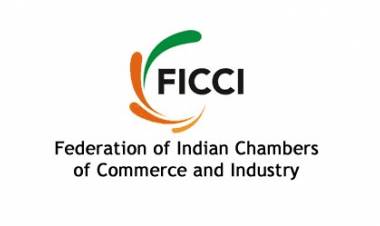
NEW DELHI, 24 September 2021: Shraddha Srivastava, Assistant Drugs Controller (I), Central Drugs Standard Control Organization (CDSCO), today said that cosmetics are becoming a part of daily use across all sections of society, irrespective of age, gender, and location, and hence, it becomes mandatory to set certain regulations that will benefit not only the consumers but also the manufacturers.
Addressing the session on Opportunities to de novo Indian Cosmetics Regulations ? Steps towards International Harmonization at FICCI MASSMERIZE- FMCG & Retail RESILIENCE, Srivastava said that as per government regulations there is a thin line between drugs and cosmetics. Therefore, a well-informed policy and rules are the need of the hour, be it for the industry, consumer, or the government.
Further, Srivastava said that the CDSCO prepared and published the revised Cosmetics Rules 2020 under Drugs and Cosmetics Act 1940 after years of deliberation and discussions with various stakeholders, consumers, and industry, both domestic and international. “It is the result of aspirations and requirements of both the cosmetics industry as well as consumers,” she said. She further added that the CDSCO tried to maintain business continuity of the cosmetics industry even during the pandemic.
Speaking at the event, Narender Ahooja Vivek, State Drug Controller of Food and Drugs Administration (FDA), Government of Haryana, said, “The most important stakeholder in the entire chain is not the manufacturer or the owner or even the regulator, it is the end user or the consumer of the product. The end user is not always aware of the safety or efficacy of the products that they use. Therefore, the total onus of providing efficacious and safe cosmetics is on regulators, manufacturers, and the marketer ? the brand name holder.”
Vivek further said that cosmetic stands on four pillars – cleansing, beautifying, promoting attractiveness, and for altering appearances. “No cosmetic should claim anything that crosses the lines set by these four pillars and enter into the field of drugs. Cosmetics manufacturers should refrain from making tall claims from marketing point of view as these are prohibited in rules laid down by the CDSCO,” he said.
Dr Sonal Shidhore, Director, Regulatory Affairs, Johnson & Johnson Pvt Ltd said that though there are several challenges faced by the cosmetic industry, but the aim is to provide quality products to the end users.
Sumeet S Jaiswal, Head – Regulatory & Business Affairs, South Asia, Oriflame said that the implementation of a separate and dedicated cosmetic rules was an important and fundamental decision for the industry to overcome various challenges that it had been facing. As these rules further clarify the regulatory requirements and standards about import, manufacture, and distribution of cosmetic products in India, it has also given a firm degree of regulatory certainty that was missing in the earlier regime of drugs and cosmetics rules.
Further, Jaiswal added that one of the most prominent developments that has occurred in the space of digitalisation of the regulatory process, which has resulted in increased efficiency is simplifying the application process and making it less time consuming. “The entire set of additions in the Cosmetics Rules 2020 have opened a new window of positive hope for the industry, thereby resulting in decrease of procedural and regulatory complexities. Industry has always partnered with regulatory authorities in bringing clarity of awareness in the existing rules and the same was reciprocated by the authorities,” he said.
Dr Manas Vyas, Head, Regulatory Affairs & Operations at Colgate Palmolive (India) Ltd, said, “Cosmetic is a dynamic industry where the pace of innovation is fast and changes in consumer preferences are faster.”

